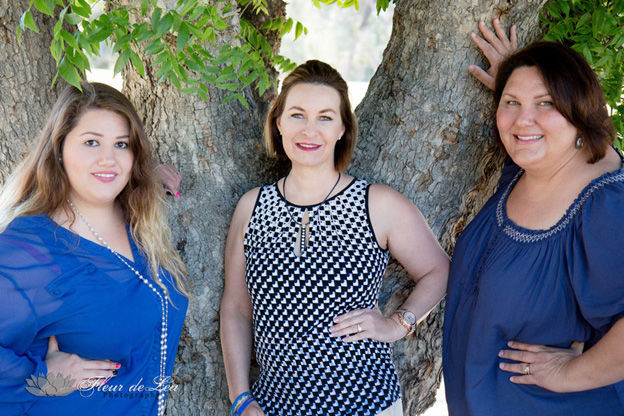If you are under age 50, chances are that you haven’t given colon cancer a second thought.
Three women and a small group of volunteers hope to change that with Get Your Rear in Gear — Tucson at 7:30 a.m. Saturday at Reid Park.
Carla Michel, Brianna Fierro and Tobi Perham are organizing the event to help raise $10,000 to promote colon-cancer awareness through the nonprofit Colon Cancer Coalition, which is dedicated to educating the public about colorectal cancer and increasing rates of early screening.
“Toby, Brianna and I represent how colorectal cancer affects the whole community: Toby has a friend affected by colorectal cancer, Brianna lost her grandfather to it and I am a survivor,” said Michel, who was diagnosed three weeks after her 50th birthday in 2014. “The three of us together represent how it touches everyone, and we all bring totally different perspectives. Hearing all of those is important because you reach more people that way.”
The diagnosis was a complete shock to the registered nurse.
“I never expected to be diagnosed with stage-three rectal cancer when I went in for my colonoscopy at age 50,” she said. “People ask if I had symptoms, and I didn’t think so, but after doing more research and really learning about it, I realize I did have symptoms. I just thought they were normal for a perimenopausal woman. That is a story I have heard over and over again from many people.”
Michel said she had several of the main symptoms, which can include change in the stool, bleeding from the rectum, stomach discomfort or cramping and unexplained fatigue, weakness or weight loss.
Additionally, Michel was unaware of her family history, which can be an important component in risk assessment.
According to the Colon Cancer Coalition, those who have a parent, sibling or offspring with colorectal cancer have two to three times the risk of developing colon cancer as those with no family history; additionally, 5 to 10 percent of colon cancers are due to specific inherited conditions that make it more likely that some family members will develop polyps, colon cancer and possibly other cancers.
Michel said it is vital that conversations about colorectal cancer come out of the shadows, particularly since it is the second-leading cause of cancer deaths.
“My mom, who is in her 70s, started having polyps removed in her late 40s, and ideally I should have had my first colonoscopy 10 years before she started having problems, which would have been in my late 30s,” Michel said. “That is not something that was typically discussed in her generation, and she had no idea that she should be having those discussions with me. Physicians need to educate their patients so they talk to their families and family members about being screened.”
Ultimately, the co-chairs hope that facilitating conversations about colonoscopies and colorectal cancer will save lives, according to Fierro, 26, whose grandfather lost his battle 10 years ago after the cancer metastasized to his brain.
“To my grandfather, it was very taboo to have a colonoscopy and I think even now, that continues for lots of people and sometimes for males especially. ... People in general feel it won’t happen to them so they just push the thought away and it becomes easier to just not get checked,” Fierro said.
The volunteers are also using humor to overcome taboos surrounding the topic: “What’s Up Your Butt?” is the tagline for the run/walk.
“The tagline is shocking because it is a confrontational statement, but when you realize it is bringing humor to the screening process, I love it,” said Perham, 44, who became involved in order to channel nervous energy after her best friend’s father was diagnosed with colorectal cancer.
She has recruited 40 students from Desert Sky Middle School to assist with the event in the effort to generate increased conversation.
Educating the community may also help affect changes with insurance companies, according to Fierro.
“With my insurance company, I can only have one colonoscopy until age 50. Research has shown that I should have one 10 years before my grandfather was diagnosed, which means I should have one by the time I am 35, and by the time I am 50, I should have had two total,” she said.
So far, the other organizers are gratified at the response from Tucsonans and hope to raise at least $10,000.
“The bottom line is that this is about taking care of yourself. A colonoscopy is a medical procedure that could save your life, and people need to be aware of that,” said Michel.





